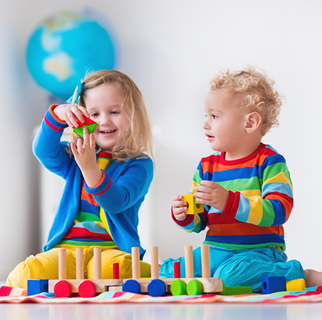What are the different stages of play?
As one can expect, children at different ages don't all play the same way. There are distinct stages that children go through as they grow. Each stage is very important to the development of the next. While not all children are the same and may not progress through the stages at the same time, these are common types of play grouped according to your child's age:
-
Infant. Babies like to be entertained. As a baby grows, they are able to play with toys with more purpose.
-
Toddler. A toddler enjoys playing on their own with toys. They particularly enjoy playing with toys that include body movement or noise.
-
Preschooler. A preschooler enjoys watching their peers and imitating others. There is only some interaction while actually playing. Older preschool children start to borrow and lend toys. This age group often starts make-believe play.
-
School-aged child. A school-aged child enjoys competitive games and sports, and formal board games. They still engage in some fantasy play. Rules are important during play with the school-aged child.
-
Adolescent. A teen enjoys competitive games and sports. The goal of this age group is social contact.
Featured in


